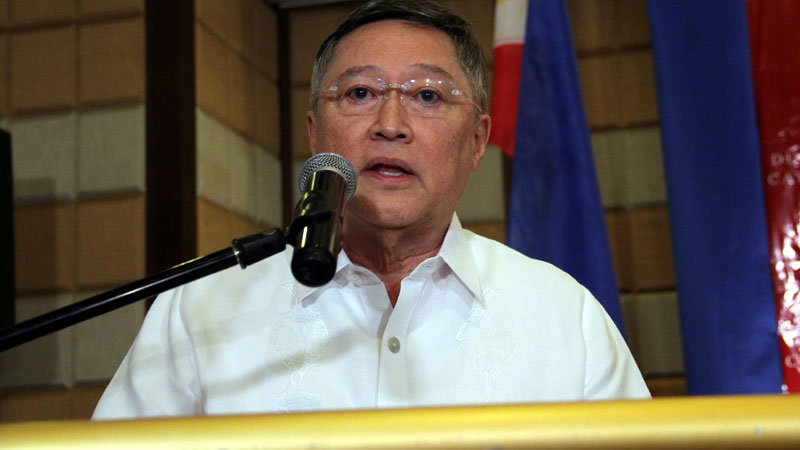In light of a sluggish global economic recovery, Asean finance ministers will keep tabs of progress made thus far since the Asean Economic Community (AEC)—aimed at making the region a single market and production base—went in full swing two years ago.
The Department of Finance said yesterday that the finance chiefs of Asean’s member-states would exchange views on further harnessing investment opportunities within the 10-member regional bloc amid the current slowdown in global growth at the 12th Asean Finance Ministers Investors Seminar (Afmis) to be held tomorrow in Lapu-Lapu City.
Besides Finance Secretary Carlos G. Dominguez III, among the top level Asean finance official attending the upcoming Afmis are Asean Deputy Secretary General Lim Hong Hin, Cambodian Secretary of State Sokha Nguon and finance ministers Pehin Dato Abdul Rahman Ibrahim of Brunei Darussalam, Sri Mulyani Indrawati of Indonesia, Johari Abdul Ghani of Malaysia and Apisak Tantivorawong of Thailand.
The DOF said the Asean finance ministers would also discuss the progress of the AEC, which is designed to create a single market and production base within the Southeast Asian region through the free flow of goods, skilled labor, services and investments among its 10 member-economies.
Also, the finance chiefs will tackle issues on regional connectivity as well as current events and other issues relevant to Asean members, including topics ranging from infrastructure investment and e-commerce to trade facilitation and the region’s rising consumer market, the DOF said.
Afmis is one of the key events during the weeklong meetings of top Asean central bank and finance officials, which will lead to the Third Asean Finance Ministers’ and Central Bank Governors’ Joint Meeting on Friday.
The Asean finance ministers and central bank governors are set to discuss ways to flesh out Asean’s commitments to financial integration and cooperation against the backdrop of a new wave of protectionism and other uncertainties in the global economy, according to the DOF.
The Bangko Sentral ng Pilipinas, meanwhile, will sign additional agreements for the establishment of so-called qualified Asean banks (QABs).
Agreements on the Asean Banking Integration Framework (ABIF) are expected to be signed on the sidelines of the Asean Finance Ministers’ and Central Bank Governors’ meetings, the DOF said last week.
Last year, BSP Governor Amando M. Tetangco Jr. said the central bank was considering formal discussions with Bank of Thailand as well as Indonesia’s Otoritas Jasa Keuangan to sign agreements under the ABIF.
“In accordance with ABIF, the BSP has signed a high-level agreement with Bank Negara Malaysia (BNM) governing QABs and looks forward to forging at least two more agreements as early as [April],” Tetangco said in a recent speech.
In March last year, the BSP and BNM agreed to allow three QABs from each country to operate in the other under the ABIF. The BSP defined QABs as “strong and well-managed banks, headquartered in Asean and majority owned by Asean nationals.”
ABIF, approved by Asean member-states in 2014, allows QABs to have greater access to neighboring markets as well as more flexibility in their operations there.
According to Asean’s website, “ABIF recognizes that some countries are more ready than others to further open up their banking sector. Hence, the current focus is on pursuing bilateral reciprocal arrangements.”
Under the BSP-BNM agreement, QABs will enter the host jurisdiction only in the form of a subsidiary of the parent bank in the home jurisdiction.
For those entering the Philippines, they will be regulated under applicable BSP regulations and within the legal framework defined under Republic Act (RA) No. 10641, the BSP earlier said.
RA 10641 allows the full entry of foreign banks. So far, the BSP allowed nine Asian banks to fully operate in the country, namely: Japan’s Sumitomo Mitsui Banking Corp.; Singapore’s United Overseas Bank Ltd.; South Korea’s Shinhan Bank, Industrial Bank of Korea and Woori Bank; as well as Taiwan’s Cathay United Bank, First Commercial Bank, Hua Nan Bank and Yuanta Commercial Bank Co. Ltd.
Tetangco said another six foreign banks were in various stages of talks with the BSP.
